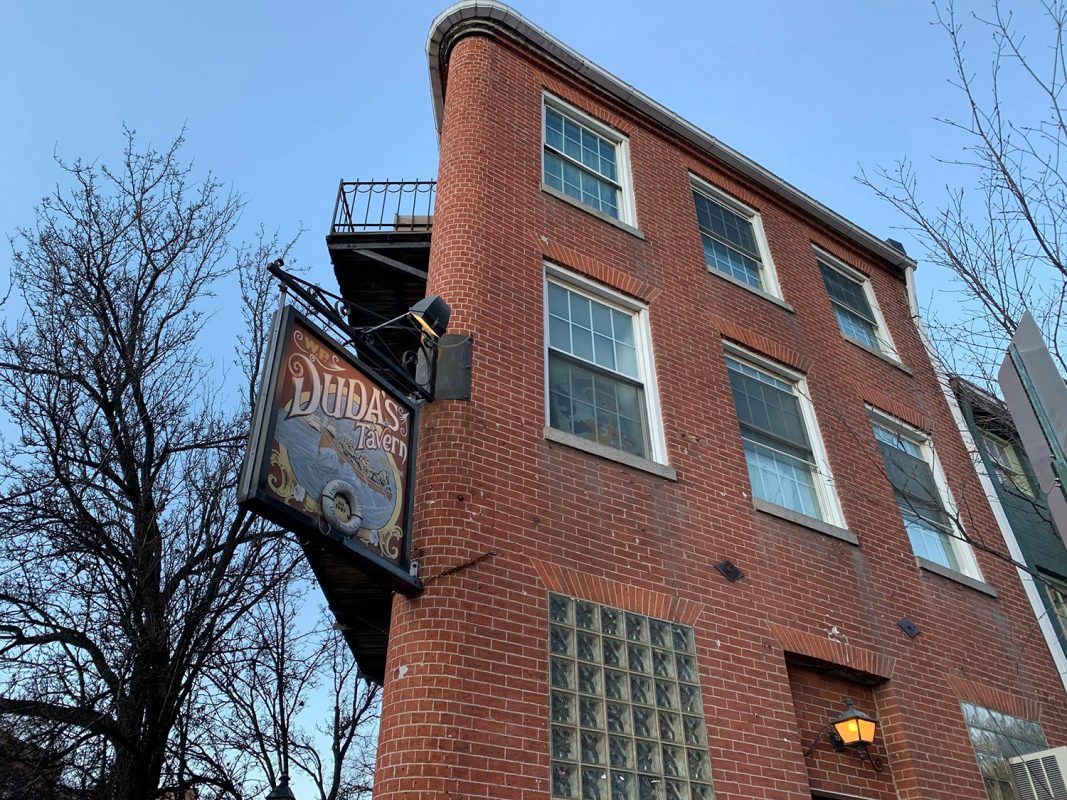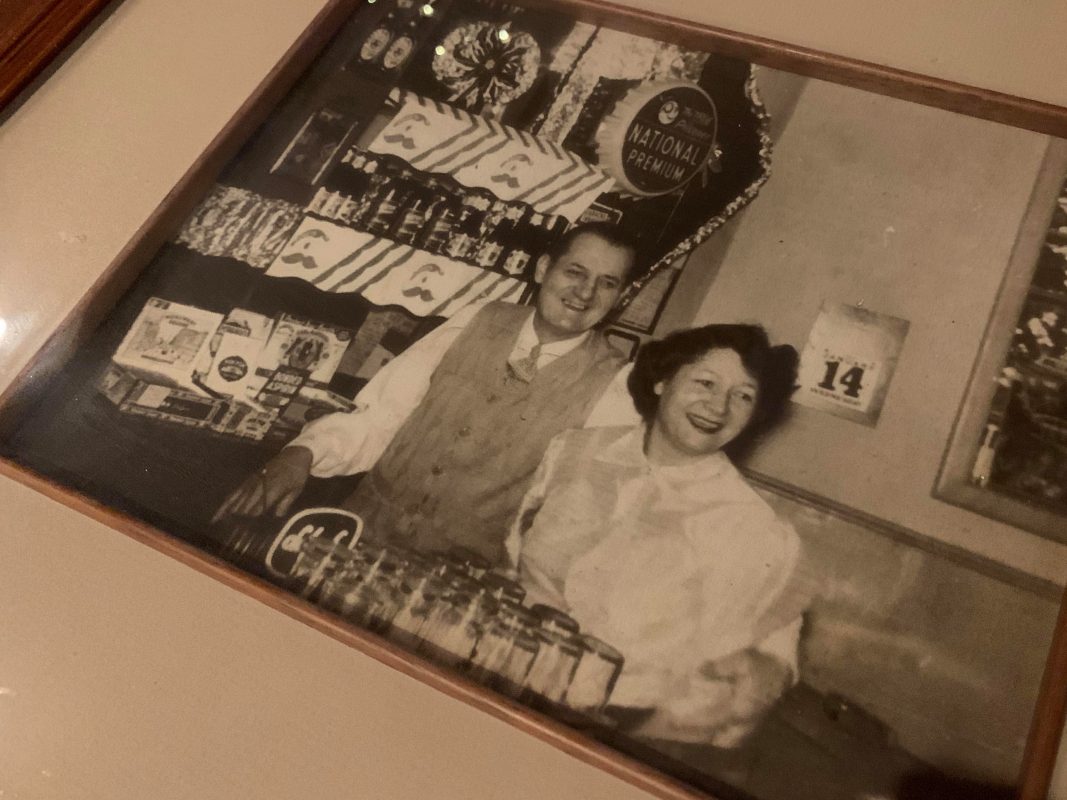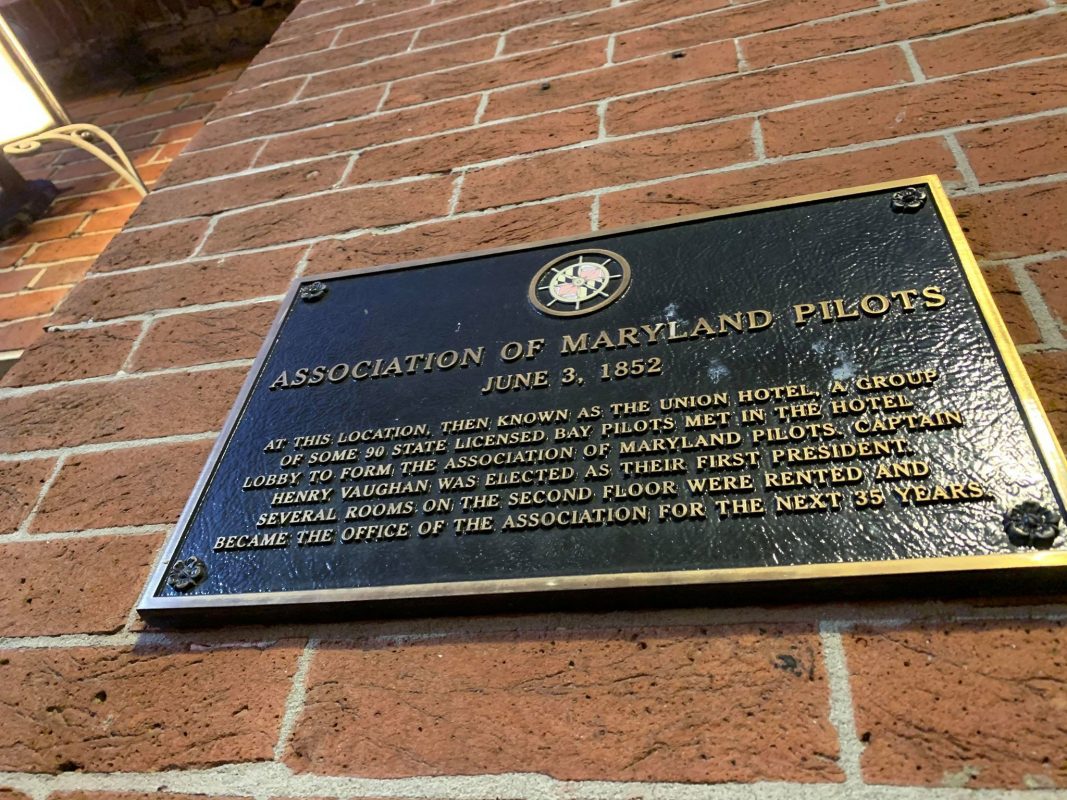
From boarding sailors to hosting the Association of Maryland Pilots in the mid nineteenth century, the rounded corner building on Thames and Bond streets comes with a storied history. For 70 years, it’s been operating as the family-run Duda’s Tavern, established in 1949 by Walter and Pauline Duda.
Their daughter, Antoinette, and her husband, John Flury, have owned the Fells Point tavern for many years now, and they added the kitchen in the ‘70s—which now turns out some of the best crab cakes in town. (The bar has also become a destination for weekly specials including $15 crab cakes on Tuesdays, half-price burgers on Wednesdays, and steak nights every Thursday.)
“Back then, the only places serving food at the time were Jimmy’s [Restaurant] and Bertha’s,” Flury says. “We got in on the ground floor, and it took off from there.”
Today, Antoinette and John’s son, Scott Curlee, runs Duda’s day-to-day operations as general manager. Curlee worked in Duda’s kitchen as a teenager until he joined the marines. After his service, he returned to Baltimore and bartended at Duda’s for several years.
“I’ve seen everything change around us,” Curlee says. “The things I remember before being here, now it’s just empty warehouses. But we’ve always adapted and kept moving forward, just trying to keep people in here. Reaching 70 years is definitely a huge milestone.”
When Walter and Pauline first opened Duda’s, the tavern was a beer-and-shot bar. A mortician, Walter previously owned a funeral home until, as Curlee explains it, he left the trade because, “he wanted to start working with the living.”

At the time of Duda’s debut, Fells Point’s economic basis had “bottomed out,” says David Gleason, president of the Society for the Preservation of Federal Hill and Fell’s Point. Waterfront warehouses had little activity. Some shipping was coming in to the docks, but not much.
“There really hadn’t been any investment in Fells Point since the 1900s,” Gleason says. “Blocks on Thames, Bond, and Caroline were pretty much empty. A lot of [Duda’s clientele] were retirees, people who worked in the shipyards. A lot of them rented rooms in the neighboring houses.”
By the time Antoinette and John took the reigns, the tavern was often serving the blue-collar workers in the neighborhood from nearby factories like the Allied Chemical Company. Gleason says in the ’70s, Fells Point was rediscovered as a great bar scene, which reinvigorated the neighborhood.
After they added the kitchen, Flury, who had a restaurant background, says there was no full menu—just a raw bar with some oysters and clams. Dining tables and chairs replaced the pool table.
“When the factories closed in the mid-80s, we lost that business,” Flury explains. Duda’s Tavern might not have survived after that, he adds, especially if a certain proposed highway expansion, which included I-83 running through Fells Point, had succeeded. That proposal, of course, was shot down after community opposition.
“All of those boarded up houses in the neighborhood were then sold to people,” Flury says. “So it was a smooth segway from factory workers to young people renovating those homes. That highway would have probably killed us—or at least put in a serious dent.”
On its corner perch, Duda’s prevails today, and its history is on display before you even walk in. Situated to the right of the entrance is a plaque commemorating the building as the original home of the Association of Maryland Pilots, founded in 1852. It operated there for 30 years. The association even celebrated its 150th anniversary at Duda’s, with a party and live band.

“One thing Duda’s still has: It’s a neighborhood gathering spot,” Gleason says. “It’s really one of those special places in Fells Point that gives the neighborhood its unique character.”
John says he and Antoinette hope to stay on until the tavern reaches 75 years, but it’s increasingly tough for them. “It’s a lot of work,” he says. But Curlee is ready to step into their shoes when the time comes.
“It’s been a fun ride,” Flury says. “And what makes it so fun is the people.”
